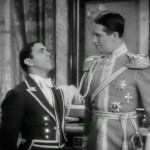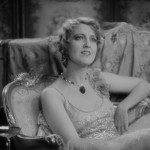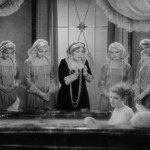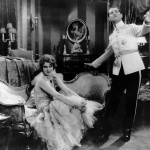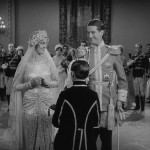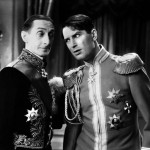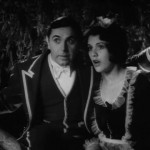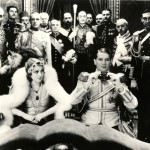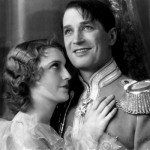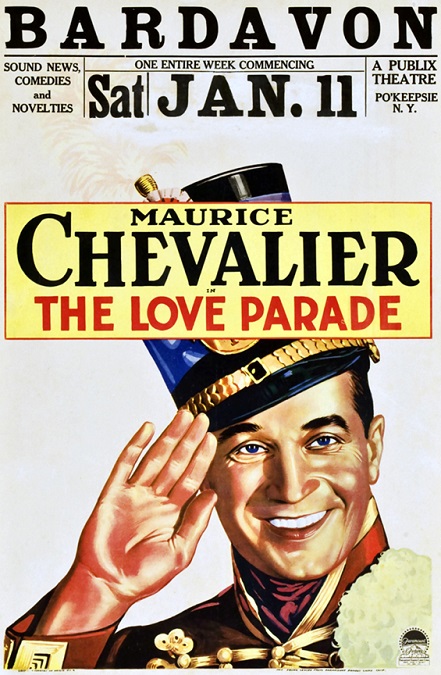

The Love Parade – 1929 / 1930
The Love Parade starred Maurice Chevalier and Jeanette MacDonald as the romantic leads. It is a musical in which Count Alfred Renard and Queen Louise of Sylvania marry, each for their own reasons. The count is a notorious womanizer and is recalled from his post in Paris, France after a string of scandalous affairs which included the Ambassador’s wife. He returns to Sylvania and is brought into the presence of the Queen. She is under pressure from her subjects to find a husband.
You can guess what happens next. Or can you? This film touched on a few themes that I was not expecting, such as the role of women in positions of power and how it can effectively emasculate the men who are with them. It also displayed the general attitude toward women in the 1920s. For example, it was believed that a woman, especially a woman of good breeding, was not a true woman unless she had a husband. That was the life fulfilling goal of many women.
But the character of Queen Louise purported to have no need of any man. She dreamt of romance or a lover, but had no desire to be ruled by a husband. She wanted to be in complete control. And when she gets what she wants, she treats him like nothing more than an obedient subject.
I suppose it might have been a bit of gender reversal. I suspect that many trophy wives feel the same way as Count Alfred must have felt: like a possession instead of a spouse. It devalues a person and wounds their self-esteem. Part of being a happy person is the basic human need to feel useful and productive. But this was taken away from the Count.
And, of course, this was a musical, so there was plenty of singing. Chevalier, as always, is slick and charming, but I am beginning to see a disturbing trend with him. I recalled another performance of his from 1958, 28 years later, in Gigi. In that film he played a creepy pedophile who was supposed to just be a charming playboy in his 60s. Here he plays a womanizer who is supposed to be a charming playboy. I see a pattern. But that being said, I have to admit… he is quite charming. He has a very disarming smile that naturally makes you feel at ease.
There was also another minor character in the film that I really enjoyed watching. It was the Count’s personal valet, Jaques, played by Lupino Laine. He was cute and funny, intended to be the slapstick comedy portion of the film. He and one of the palace maids, Lulu, played by Lillian Roth, get to do the only real dancing in the movie. And it was their comedic dancing in the number Let’s Be Common, which showed off Laine’s somewhat acrobatic talents.
There was even a very humorous moment in the song Paris, Stay the Same, in which several dogs in the city began barking out the melody of the song. This tells me that the film, fortunately, didn’t take itself too seriously. It knew that it was a comedic musical and didn’t try to be too much else.
But in the end, I was left with a definite and defining message. When the Count, tired of being treated like a simple subject and ignored when he tries to exercise any political power as the husband of the Queen, leaves Louise, she realizes that she loves him too much to let him go. She basically hands him her kingdom, giving him complete political power and making him King instead of just the Prince Consort. And in doing so, she finds true happiness, reinforcing the notion that in order for a woman to be truly fulfilled, she needs a man to be in a position of power and control over her.
Obviously, it is a very outdated ideal. Apparently, these people never heard of the concept of compromise.
